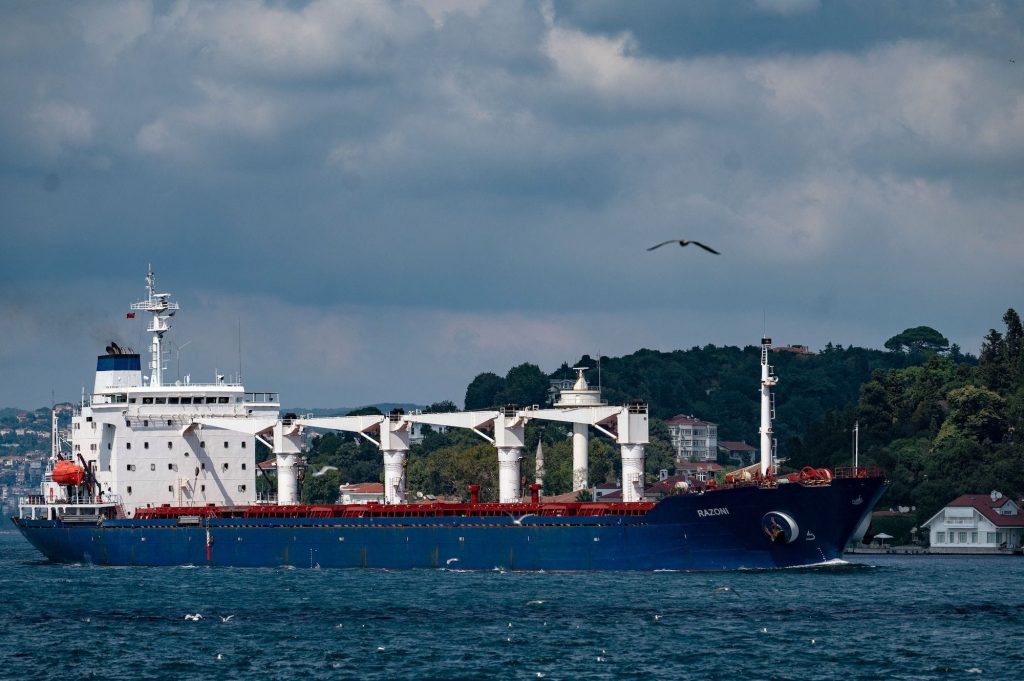- A ship carrying 26,000 tonnes of Ukrainian grain is anchored off the Turkish coast, the UN said.
- The UN's Joint Coordination Centre told the FT that the ship is currently awaiting instruction.
- The intended buyer rejected the shipment over quality concerns, per the FT.
The effort to restart Ukrainian grain exports and ease a looming global food crisis is temporarily in limbo as the first ship to leave the country currently sits anchored off the Turkish coastline.
The Razoni, which is carrying 26,000 tonnes of corn, is awaiting instructions of its next destination, after the original buyer rejected the shipment over quality concerns, the UN-led Joint Coordination Centre (JCC) which is monitoring its journey, told the Financial Times.
Unnamed cargo agents also confirmed the pause to the FT. The JCC did not immediately reply to Insider's request for further comment.
The fortunes of the Razoni have been closely monitored since it left the Ukrainian Black Sea port of Odesa on August 1. The ship is the first to do so under a UN-brokered agreement between Ukraine and Russia to restart exports and lift the blockade of the Black Sea that started at the beginning of the war.
Ukraine is often referred to as the Europe's "bread basket" — because its exports account for around 10% of the world's supply of wheat — and there are significant concerns that the war could contribute to a global food crisis. The problem is particularly acute for countries in the Middle East and Africa which rely heavily on grain imports to feed their population.
A total of 14 ships have so far left Ukraine as part of the initiative, which is being overseen by the JCC.
The Razoni traveled to Turkey for inspection, and was originally set to arrive in the Lebanese port of Tripoli Sunday morning. It then emerged later on Sunday that the ship was delayed, per the Associated Press.
The Ukrainian Embassy in Lebanon tweeted Monday that the buyer of the grain refused to accept the original delivery terms after a delay of five months to the shipment.

